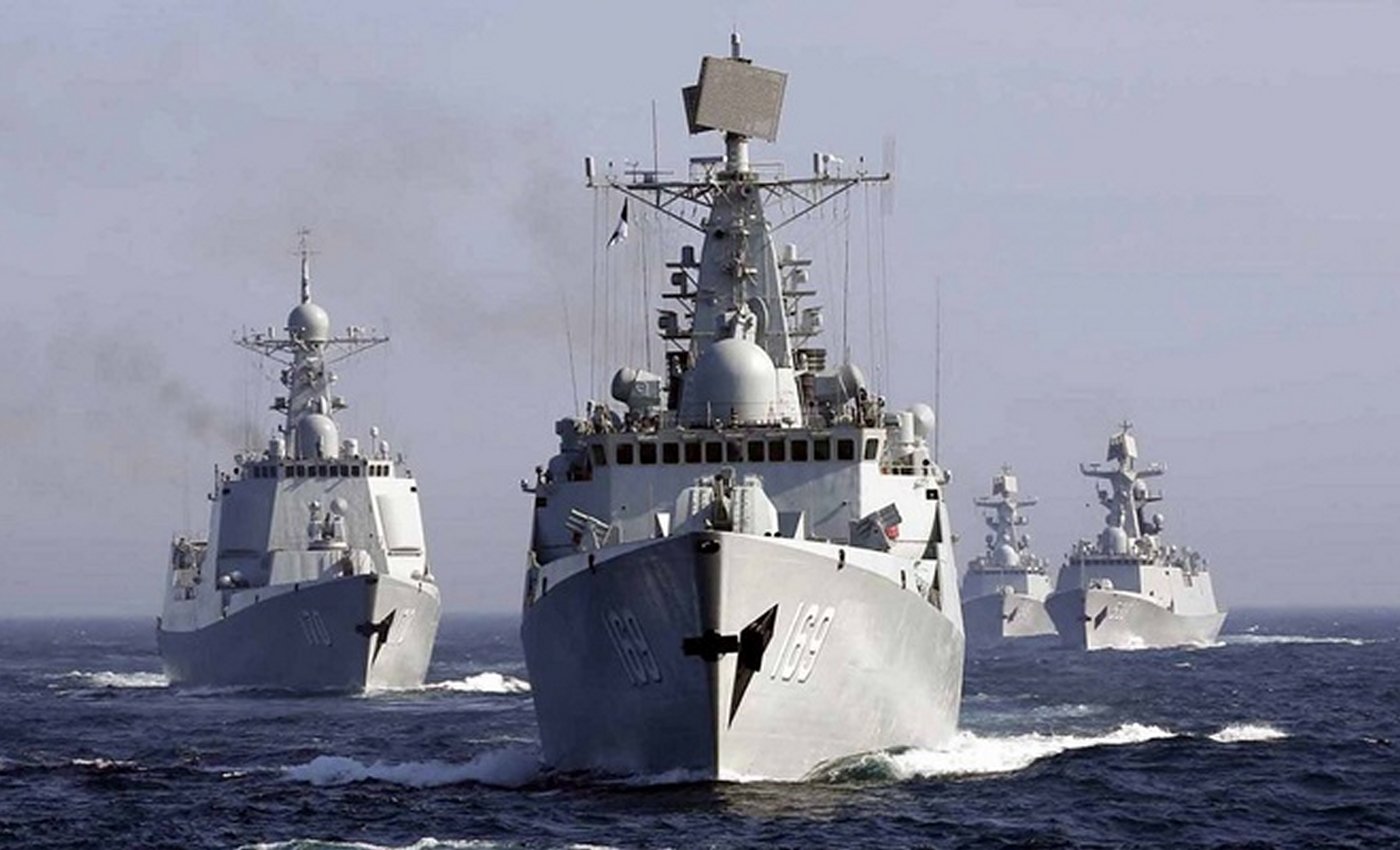Qantas has warned its pilots about very high frequency (VHF) interference from stations purporting to represent the PLA in the South China Sea and western Pacific, as well as GPS jamming allegedly originating from warships off the coast of northwest Australia.
In a notice published on March 16, the airline updated its flight standing orders manual to incorporate procedures for what to do if crews run into such circumstances.
The notice alerted pilots to hostile activities that flights had sometimes experienced in the western Pacific and South China Sea.
According to the release, interference on VHF was experienced by Qantas Group aircraft in the western Pacific and South China Sea from stations allegedly representing the Chinese military.
The term “very high frequency,” or VHF, refers to radio waves that range in frequency from 30 to 300 MHz and are utilized for various radio communications.
Qantas warns its pilots of VHF interference by stations claiming to represent the PLA in the South China Sea and WESTPAC, along with GPS jamming suspected to be coming from warships off NW Australia
— Mike Yeo 杨启铭 (@TheBaseLeg) March 17, 2023
This almost certainly affects other commercial operators besides Qantas pic.twitter.com/D7NoPb8hxu
In addition, the notification further said that Qantas aircraft have also encountered GPS jamming that is thought to have originated from warships operating off Australia’s northwestern coast.
The Australian flag carrier, however, informed the pilots that there had been “no safety events reported that relate to this activity.”
The updated guideline advised pilots to stay on course if they encountered unauthorized VHF communications or interference that claimed to be coming from the Chinese military.
After landing, they must notify the controlling air traffic control authority and file an incident report using the Intelex software.

“Should flight crew experience this interference, they should continue to track via their assigned clearance and report the interference to the controlling ATC authority,” the notice read.
Earlier this month, in a statement, the International Federation of Air Line Pilots’ Associations also said it had been informed that military warships in the Pacific region, specifically the South China Sea, Philippine Sea, and East of the Indian Ocean, had been contacting some airlines and military aircraft over specific VHF (very high frequency) numbers.
In certain situations, the flights were given directions to avoid airspace over the warship. According to the IFALPA, there may be interference with Radio Altimeter systems and Global Navigation Satellite Systems.
IFALPA highlighted that it is collaborating with the International Air Transport Association and Air Navigation Service Providers (ANSPs) to ensure that all parties comply with established protocols and avoid this in the future.
The international agency also advised pilots to report interferences to the controlling agency without reacting. Furthermore, they were instructed to “notify your company’s dispatcher of the attempted contact” and promptly file a safety report.
China Angry Over AUKUS Deal
The policy update by Qantas comes as Australia recently announced a historic agreement to purchase US nuclear submarines under the AUKUS pact.
Read More
Earlier, China had expressed concern over Australia’s submarine deal, saying it had started to go “further down a dangerous road.”
The historic AUKUS deal was unveiled in San Diego by Australian Prime Minister Anthony Albanese, British Prime Minister Rishi Sunak, and American President Joe Biden.
The total cost of the submarine program will be between $268 billion and $368 billion by the 2050s, and homegrown nuclear submarines will be available by 2042.
The plan would see Australia buy at least three submarines from the US and introduce improvements to prolong the life of the current fleet. Adelaide will also be the site of constructing at least five UK-designed vessels with US technology by the middle of the 2040s.
In response, China’s foreign ministry asserted that the three nations had “disregarded” concerns from the world community and that their actions were only motivated by geopolitical concerns.
China’s foreign ministry spokesman Wang Wenbin said on March 14 that the most recent joint declaration from the United States, United Kingdom, and Australia shows that the three nations entirely disregard the international communities’ concerns to pursue their geopolitical goals and are progressing down a risky path.
Nevertheless, Australia, the US, and the UK argue that Nuclear Non-Proliferation Treaty (NPT) explicitly permits the transfer of nuclear technology for naval propulsion. Yet, they admit this is the first time a transfer of this kind has been performed from a nuclear weapons state to a non-nuclear weapons state.
- Contact the author at ashishmichel(at)gmail.com
- Follow EurAsian Times on Google News